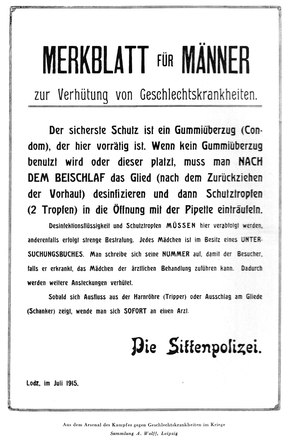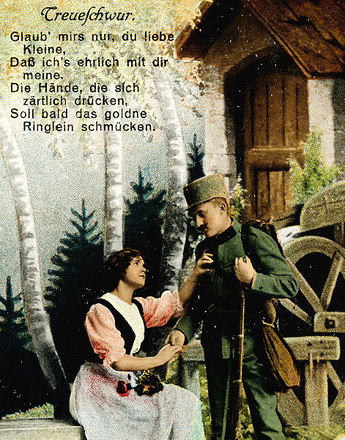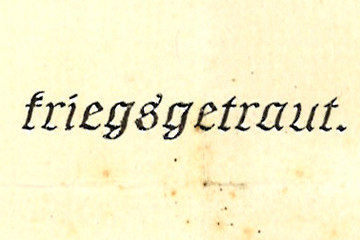-
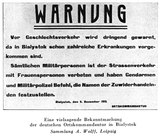
Warning by the German local headquarters in Bialystok against venereal diseases, 9 November 1915
Copyright: privater Leihgeber
-

Alfred Blaschko: “Hygiene of venereal diseases”, article in a specialist publication, 1918
Copyright: Wienbibliothek im Rathaus
Partner: Wienbibliothek im Rathaus – Vienna Library in the City Hall -
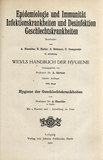
Title page of von Weyl’s Manual of Hygiene, Volume 8: Epidemiology and immunity, infectious diseases and disinfection, venereal diseases. 2nd edition, Leipzig 1918
Copyright: Wienbibliothek im Rathaus
Partner: Wienbibliothek im Rathaus – Vienna Library in the City Hall -
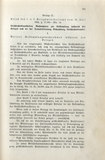
Decree by the Austro-Hungarian Minister of War concerning venereal diseases of 14 July 1916, part 1
Copyright: Wienbibliothek im Rathaus
Partner: Wienbibliothek im Rathaus – Vienna Library in the City Hall -

Decree by the Austro-Hungarian Minister of War concerning venereal diseases of 14 July 1916, part 2
Copyright: Wienbibliothek im Rathaus
Partner: Wienbibliothek im Rathaus – Vienna Library in the City Hall -

Decree by the Austro-Hungarian Minister of War concerning venereal diseases of 14 July 1916, part 3
Copyright: Wienbibliothek im Rathaus
Partner: Wienbibliothek im Rathaus – Vienna Library in the City Hall -
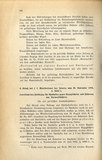
Decree by the Austro-Hungarian Minister of War concerning venereal diseases of 14 July 1916, part 4
Copyright: Wienbibliothek im Rathaus
Partner: Wienbibliothek im Rathaus – Vienna Library in the City Hall
With the outbreak of war, there was a significant increase in premarital and extramarital sexual relations both in the army and the civilian population. The military feared the rapid spread of venereal diseases, and the sexual activity of the troops was therefore of interest to it.
It was not so much a question of morality as of health. To safeguard the combat capability of the army, it was important to prevent any increase in venereal infections. While the wives of the soldiers at the front were called upon to be faithful and abstinent so as not to endanger morale, male promiscuity was extensively accepted and a generally pragmatic approach adopted. The warring armies nevertheless tried different ways of preventing the spread of venereal diseases.
Medical experts disagreed as to the effect of sexual abstinence on health. Some argued that the satisfaction of sexual drives was essential to health. Their opponents claimed that sexual abstinence had no damaging effect and was the ideal means of preventing venereal diseases.
Within the armies themselves, a variety of approaches were used to solve the problems of sexual morality and health. Some officers called for abstinence and fought to maintain morality, while others actively attempted to find heterosexual contacts for the troops.
The Prussian Ministry of War made a distinction between young, single soldiers and older married men. It assumed that sexual abstinence could be demanded only from younger, unmarried soldiers but not from men used to regular sexual relations within marriage. British and American officers were not in favour of banning prostitution, as they regarded moral “dissipation” in the form of masturbation or homosexuality as far more serious. As can be read from the field reports of the commandant of the Austro-Hungarian army on the south-west front, male sexuality was seen as a natural drive:
“Experience has shown that the nervous tension and physical stress of the men at the front are connected to a certain extent with increased sexual desire and that moral and religious proscriptions often fall down in the face of this powerful elementary drive.”
There was a desire on the one hand to address the sexual needs of the soldiers but on the other to prevent the spread of venereal diseases. A wide variety of measures were undertaken to prevent venereal infections, from compulsory examinations and reporting of venereal diseases to calls for abstinence, regulated prostitution and the issuance of prophylactic aids.
Translation: Nick Somers
Biwald, Brigitte: Von Helden und Krüppeln. Das österreichisch-ungarische Militärsanitätswesen im Ersten Weltkrieg. Teil 2, Wien 2002
Hirschfeld, Magnus/Gaspar, Andreas: Sittengeschichte des Ersten Weltkrieges, 2. Auflage, Hanau am Main 1966
Sauerteig, Lutz: Militär, Medizin und Moral: Sexualität im Ersten Weltkrieg, in: Eckart, Wolfgang U./Gradmann, Christoph (Hrsg.): Die Medizin und der Erste Weltkrieg, 2. Auflage, Herbolzheim 2003, 197-226
Überegger, Oswald: Krieg als sexuelle Zäsur? Sexualmoral und Geschlechterstereotypen im kriegsgesellschaftlichen Diskurs über die Geschlechtskrankheiten. Kulturgeschichtliche Annäherungen, in: Kuprian, Hermann J. W./Überegger, Oswald (Hrsg.): Der Erste Weltkrieg im Alpenraum. Erfahrung, Deutung, Erinnerung. La Grande Guerra nell’arco alpino. Esperienze e memoria, Innsbruck 2006, 351-366
Quotes:
“Experience has shown ...": Feldakten des Kommandos der Südwestfront, Österreichisches Staatsarchiv, Kriegsarchiv, Neue Feldakten, Kommando der Südwestfront (I), 1916, Res. Nr. 1783-159/4, quoted from: Überegger, Oswald: Krieg als sexuelle Zäsur? Sexualmoral und Geschlechterstereotypen im kriegsgesellschaftlichen Diskurs über die Geschlechtskrankheiten. Kulturgeschichtliche Annäherungen, in: Kuprian, Hermann J. W./Überegger, Oswald (Hrsg.): Der Erste Weltkrieg im Alpenraum. Erfahrung, Deutung, Erinnerung. La Grande Guerra nell’arco alpino. Esperienze e memoria, Innsbruck 2006, 353 (Translation)
-
Chapters
- Separation of husbands and wives and sexual mobility in the First World War
- Dwindling birth rates during the First World War
- "Mobilisation of the cradle"
- State control and social stigma
- Abstinence and satisfaction of needs
- Combatting venereal diseases in the Austro-Hungarian army
- “Resist from the outset”
- Sexual relief for soldiers
- Prevention or punishment
- Sexual assault in the First World War
- Sexual violence in Allied war propaganda

